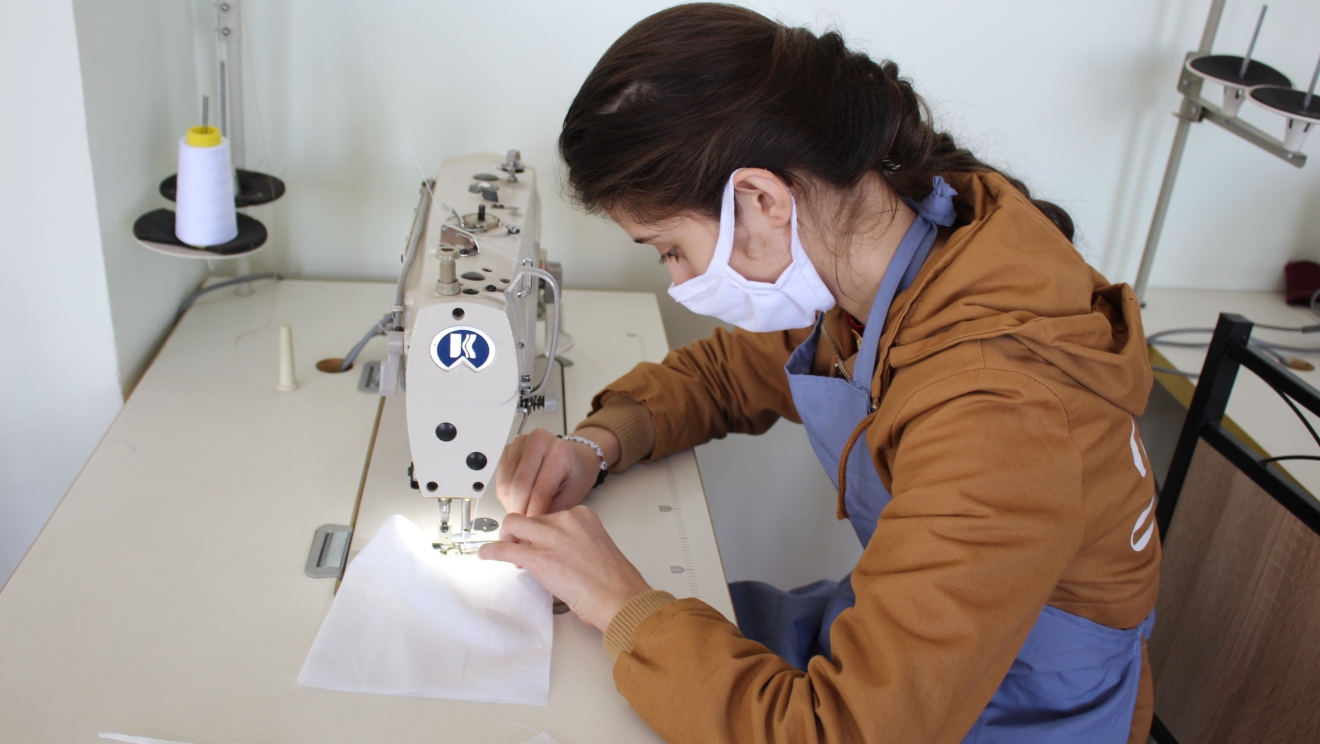

COVID-19: UNIDO helps Tajik textile enterprises diversify into PPE production
14 April 2020 Charles ARTHUR
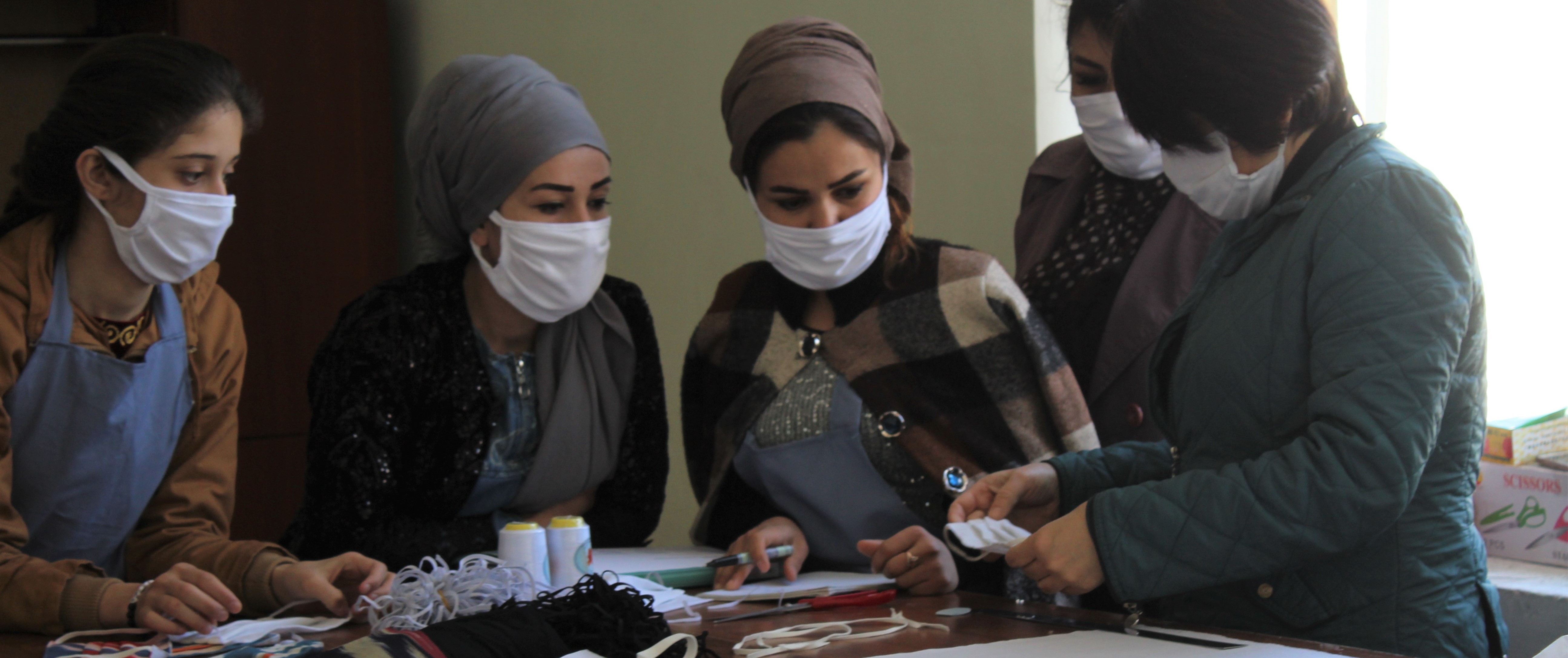
As of 14 April, Tajikistan had not announced the confirmation of any COVID-19 cases. Over recent months, the authorities have taken drastic measures to help keep the coronavirus at bay. The border with China has been closed since 24 January and entry from Iran was halted on 23 February. All commercial flights were suspended on 20 March and traffic to and from Kyrgyzstan was suspended on 24 March. Schools, however, are still open and people are going to work as normal.
To further help avoid a health crisis, some national textile enterprises are diversifying production to include medical masks and gowns. The move will provide much-needed supplies of protective equipment to prevent the spread of the coronavirus in Tajikistan.
Two enterprises making this move, Guldaston and Suman, have received assistance from the United Nations Industrial Development Organization (UNIDO), which has organized training classes to help expand production and meet quality requirements.
In early April, locally recruited UNIDO experts specializing in textile manufacturing and quality standards held master classes on medical mask production for new employees at Guldaston and Suman. The classes provided training on techniques related to the sewing, cutting and manufacturing of masks, and introduced ways to use different textiles available on the local market for mask production.
Both enterprises are partners with UNIDO in an existing project to modernize and improve the competitiveness of country’s carpet weaving, embroidery and textile sectors. A second phase of the project, which is funded by the Russian Federation and implemented in conjunction with the Tajikistan Ministry of Industry and New Technologies, began in 2018.

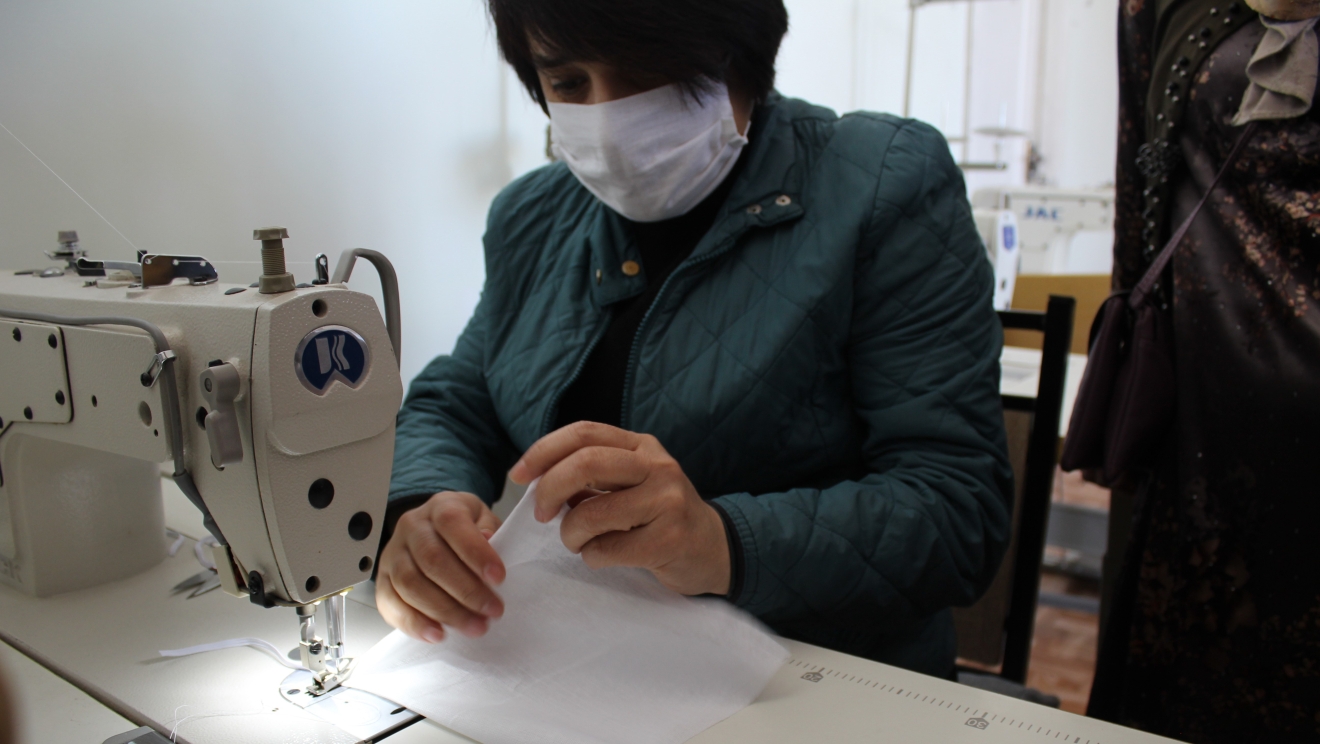
The training classes for Guldaston and Suman took place within the project framework for a series of capacity-building activities and were adjusted to the needs of the companies which were concerned about their ability to produce masks in sufficient numbers because of a lack of relevant sewing skills among their personnel.
Shahlo Vatanova, director of Guldaston, explained, “We have already adjusted logistics and can receive sufficient raw material supplies. For now, the most important thing is to prepare specialists who could start working immediately after training. Unfortunately, the company is not able to establish the training process on its own, so we are grateful to the UNIDO experts for their help.”
The production of medical masks has provided a new opportunity for cooperation between beneficiaries of the UNIDO project. A fabric supply contract has recently been signed between Guldaston and the Nohid company, which specializes in the production of fabric from cotton grown by farmers who are part of the Better Cotton Initiative (BCI). This initiative helps farmers to grow cotton in a way that reduces stress on the local environment and improves the livelihoods and welfare of farming communities.
Guldaston’s Vatanova hailed the agreement, saying, “We do not have any problems with raw material supplies. Thanks to our cooperation with Nokhid, which produces BCI-cotton-based fabric, the quality of our masks is much higher compared to other enterprises.”
She added that Guldaston is now waiting for special permission to produce sterile medical masks from the Ministry of Health and Social Protection of the Republic of Tajikistan, which will allow the enterprise to officially set up a specialized production line.
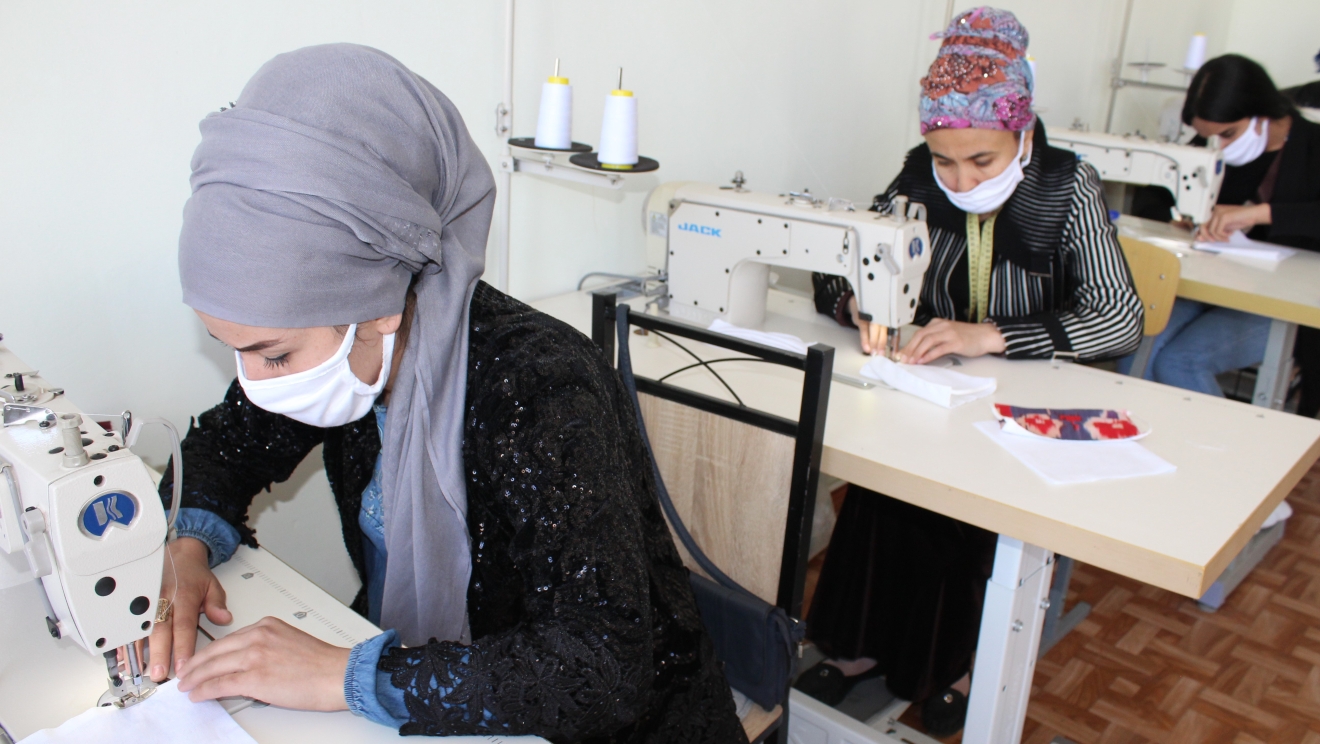
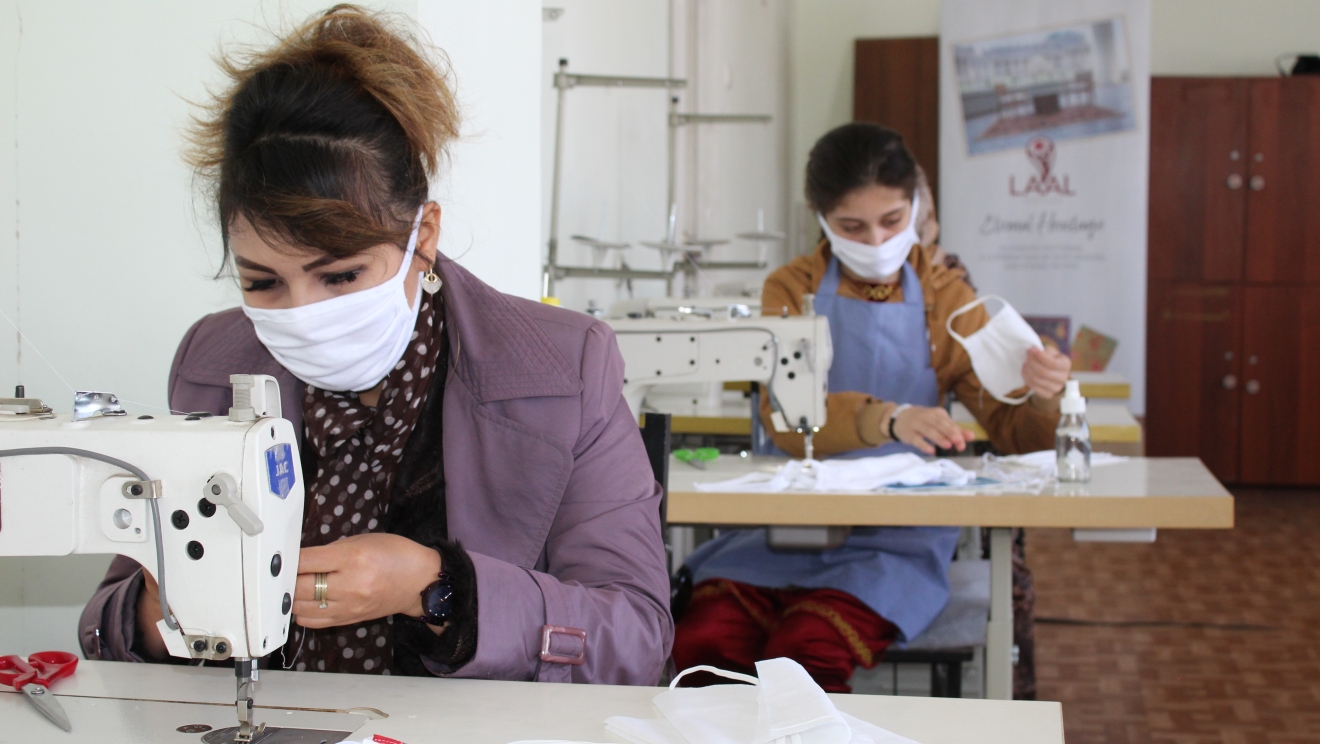
“Of course, first of all we have to fully cover the needs of our country. When we get permission to produce medical masks for export needs, we will be able to cope with this task too. Thanks to the UNIDO project, we do not feel left behind. I would like to express my sincere thanks to the experts for being with us, even in the most difficult times.”
Sarvinoz Junaydova, National Technical Coordinator of the UNIDO project in Tajikistan, said, “Our beneficiaries are now capable of producing between as many as 20,000 masks a day, but this is not enough to meet the frenzied demand. Of course, we are pleased to see that the beneficiaries of our project are quickly adapting to the new circumstances and challenges, aligning their production with the public health protection measures.”
Junaydova added, “From our side, we try to support them in every possible way because now, every mask could mean someone's life, which is why the quality of products manufactured by our beneficiaries is the highest priority for us.”
For Vatanova, the enterprise's move to diversify into mask production is a win all round. “I believe that the mass production of protective medical masks under the current difficult conditions is beneficial for all: dozens of people will get a permanent job; the public demand for medical masks will be met; and the production of domestic cotton fabric will increase.”